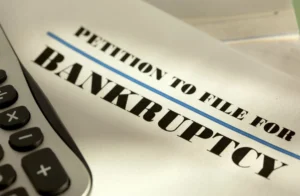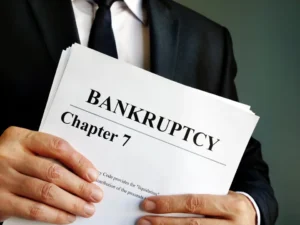When you declare bankruptcy, your assets are at risk of being used to satisfy debts. But when you are also the owner and operator of a family business, what does this mean for your business assets? To help you and your family know what to expect during this difficult time, here are some answers to a few key questions to determine what how they will be handled.
Is Your Business Part of You?
When an individual or married couple file personal bankruptcy, assets they own can be used to settle debt. However, assets of a different individual or a separate business entity cannot generally be used. So, one of the most important factors in whether or not you can keep the business depends on how it was structured – as part of you or as a separate entity.
A sole proprietorship is not considered legally separate from the owner, so its income is declared by the owner and he or she deducts its expenses on their personal Form 1040. Assets owned by this type of business can be used by the bankruptcy trustee. A limited liability corporation (LLC) is usually treated like a corporation – but this may depend on how it was set up and how it’s been handled.
If you own an S or C corporation, your personal assets consist of your equity or stock ownership in the company – not the company’s assets. A partnership can be more complicated depending on how much of the company’s debts you are personally liable for.
Does the Business Have Value to Collect?
Even if the trustee has the ability to use business assets, the question is whether or not it’s a viable option. If you’re the sole proprietor of a landscape company, you probably own heavy equipment, inventory, and vehicles that might bring a good price at auction. These could be fair game for the trustee.
However, if you are a sole proprietor who does people’s hair and makeup, you may not have many expensive assets. The value of the company is, instead, tied up in your personal services. Trying to value this business for sale would be nearly impossible without including your skills, experience, and personal reputation. So the trustee might not actually find the business worth seizing.
Problems with selling the business could also arise within the terms of its creation. If you can only sell stock within the family, for example, a public sale of your equity might be out of the question. Or if the company’s assets are so non-liquid that trying to reach a successful sale would take too long, it might end up safe as well.
Can You Exempt Business Assets?
There are a few different ways to exempt business assets from seizure. If using the federal list of exemptions – such as in Arkansas – you may be able to use an exemption for tools of the trade as well as vehicles or homestead exemptions (for home based businesses). There are, of course, dollar limits to each exemption so you may not be able to protect everything.
Both sole proprietors and stockholders or partners may also be able to use a ‘wildcard’ exemption. Some states allow a certain amount of exemption funds to be used to protect any asset or equity amount they wish, provided it is within the limit. You could use a wildcard exemption to protect stock holdings, for instance, or priority business tools and equipment to rebuild.
Bankruptcy can be a confusing process, and even more so when a business is involved. Your best path to success in protecting what you’ve worked hard to build is to work with an experienced bankruptcy attorney as soon as possible. The Madden Law Firm can help. Call today to make an appointment for a free consultation.




